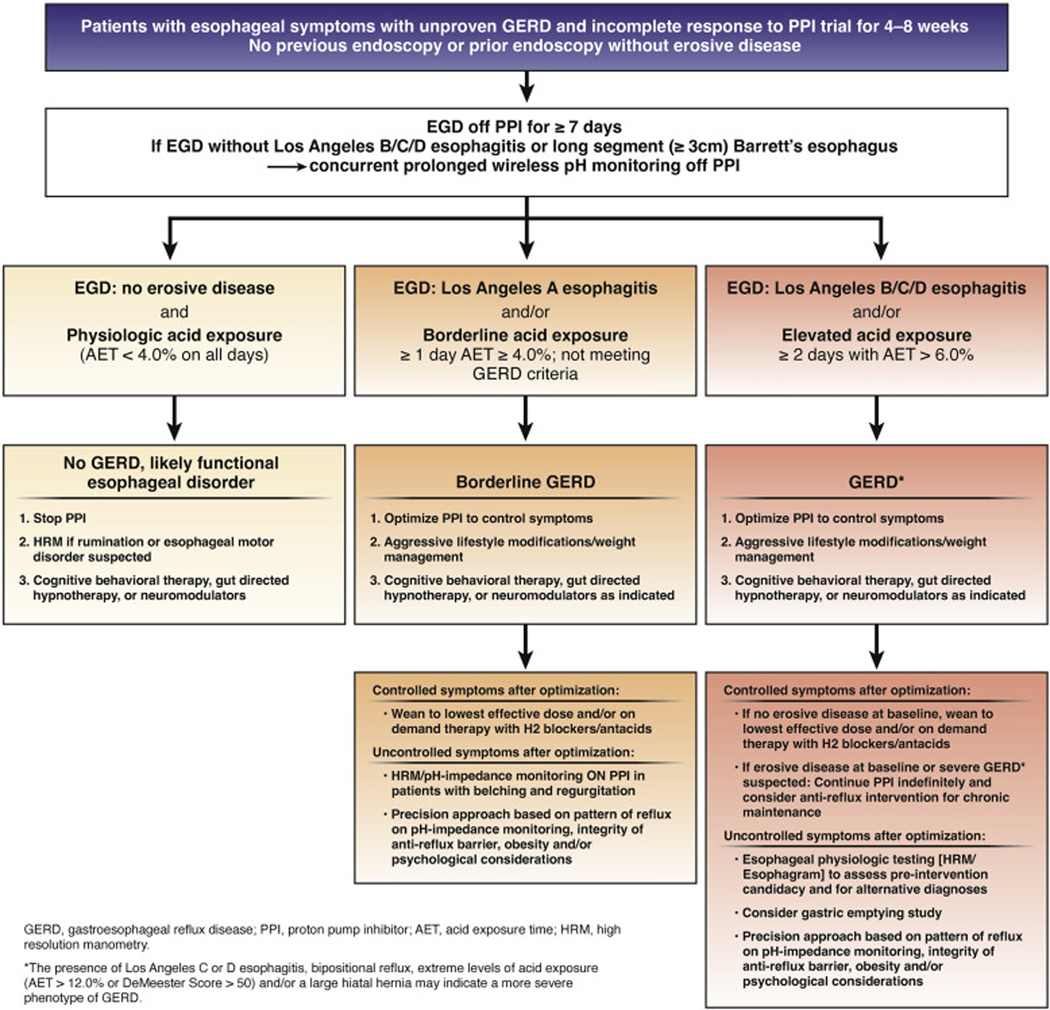Figure 3.
Personalized approach to diagnosis and GERD based on findings on endoscopy and prolonged ambulatory wireless pH monitoring. Patients with no GERD likely have an alternate explanation for symptoms, which can be a functional disorder; hence, PPIs can be discontinued, and other management options explored. Patients with borderline GERD may need PPIs but these are titrated to the lowest dose or frequency that controls symptoms, or replaced with H2RAs. Adjunctive approaches include lifestyle and behavior modification. Patients with GERD have Los Angeles grade B esophagitis or higher, and/or AET ≥6.0% on 2 or more days on prolonged wireless pH monitoring performed off PPI therapy. Within patients with GERD, a severe GERD phenotype exists characterized by advanced grade esophagitis (Los Angeles grade C or D), and/or AET >12.0%, bipositional reflux or Demeester score >50, which requires either continuous long-term PPI therapy or invasive anti-reflux procedures, in addition to optimization of lifestyle measures. Medical management may be adequate for patients with GERD who respond to therapy, whereas escalation to anti-reflux procedures can be considered after appropriate esophageal physiologic testing for non-responders despite optimization of therapy.

